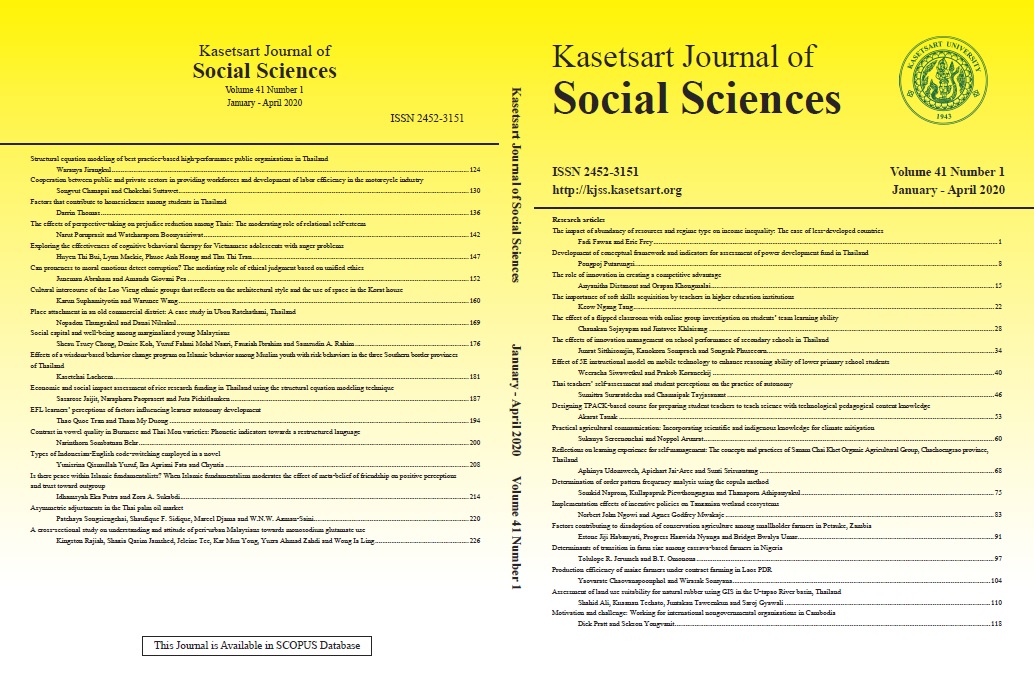The effect of a flipped classroom with online group investigation on students' team learning ability
Keywords:
collaborative learning, flipped classroom, group investigation, online learning, team learningAbstract
This study examined the effects on the team learning ability of upper secondary school students using a flipped classroom model with online group investigation. The subjects of the study were 30 upper secondary school students. The instruments employed in the study consisted of: (1) a flipped classroom model with online group investigation, (2) a website for flipped classrooms, and (3) a learning management plan. The data collection instruments comprised: (1) a self-assessment form of team learning ability and (2) a team learning behaviour observation form. The study found that the average team learning ability of the learners was significantly higher after the lessons, and those with different learning abilities were able to learn as a team at significantly different rates. Post-hoc multiple comparison tests (LSD) revealed that the team learning ability scores of the learners with high learning ability differed significantly from those of the intermediate and beginner learning ability groups, while the team learning ability scores of the intermediate and the beginner groups were not significantly different. The beginner group scored the highest regarding team learning ability, followed by the intermediate group and the advanced group, respectively.
Downloads
Published
How to Cite
Issue
Section
License
Copyright (c) 2018 Kasetsart University

This work is licensed under a Creative Commons Attribution-NonCommercial-NoDerivatives 4.0 International License.
This is an open access article under the CC BY-NC-ND license http://creativecommons.org/licenses/by-nc-nd/4.0/










